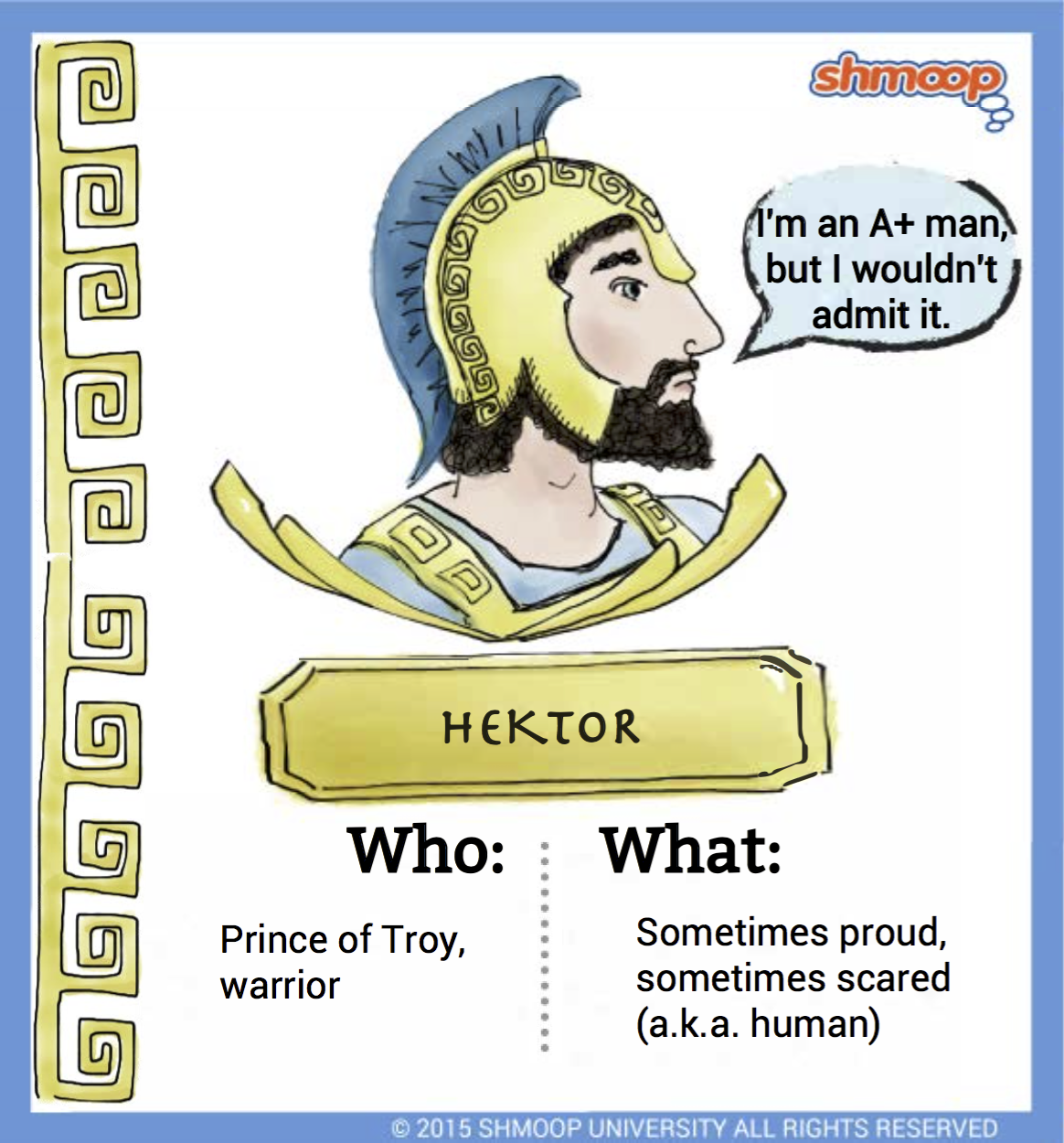Character Analysis

(Click the character infographic to download.)
What the Hektor?
Not going to lie: Hektor struck us as a little yawn-worthy at the beginning of this epic. He was just so good. So family-oriented. So duty-bound. Luckily for us—and any of you Shmoopers who like a bad boy (or at least complicated boy) better than a shiny hero-type guy—Hektor's dark side leaches out eventually.
When we meet him, Hektor fights primarily out of a sense of responsibility to his city and his family. The connection between these two is particularly strong for Hektor because his parents are Troy's king and queen. Mainly, though, we get a sense of Hektor's devotion from his interactions with his wife, Andromache, and their infant son, Skamandrios (whom the citizens have nicknamed "Astyanax" or "Lord of the City" in recognition of his father's role as the city's defender). Hektor's loving words toward his wife and son at the end of Book 6 reveal the Trojan warrior's deep humanity.
He's not just a good soldier, he's a family man.
But Hektor's sense of duty makes him sharply critical of those he thinks aren't pulling their own weight for the common good. We see this especially in his attitude toward his brother, Paris, whom he repeatedly insults for getting the city in trouble and then not acting courageously to defend it.
This sense of right and wrong is not limited to the battlefield, however; he also criticizes his mother for trying to convince him to relax with a glass of wine (what a nice mom!) when he should be out on the battlefield. Similarly, when Hektor rejects Helen's offer to sit with her and talk, we perceive Hektor's deep sense of loyalty: he tells her that he has to go see his wife and child.
Pride Goeth Before a City's Fall
For all this, however, Hektor is still a warrior, and still susceptible to the warrior's greatest weakness: pride. Check out this little nugget of hubris:
(Hektor:) If it is true that brilliant Achilleus is risen beside their
ships, then the worse for him if he tries it, since I for my part
will not run from him out of the sorrowful battle, but rather
stand fast, to see if he wins the great glory, or if I can win it. (18.305-308)
Even though Hektor's pride helps to make him a brave warrior, it can also cloud his judgment. Ultimately it leads to his downfall, and, because he is Troy's greatest warrior, the downfall of the city itself (even though this is only foreshadowed, not depicted, in the Iliad).
Hektor makes two fateful decisions: first, he disregards Poulydamas's advice and keeps the Trojans encamped on the plain of Troy. This leaves them open to Achilleus's counterattack. Bad move, bro.
Second: he waits outside the walls of Troy, confident he can withstand Achilleus on his own. When Hektor's courage fails him and he starts running away from Achilleus—despite his earlier boast that he would never do so—many readers will be able to sympathize with his human weakness. When he regains his courage and, at the decisive moment, charges into battle knowing he is doomed, we gain a deeper respect for this flawed but essentially decent character.
Hektor Timeline